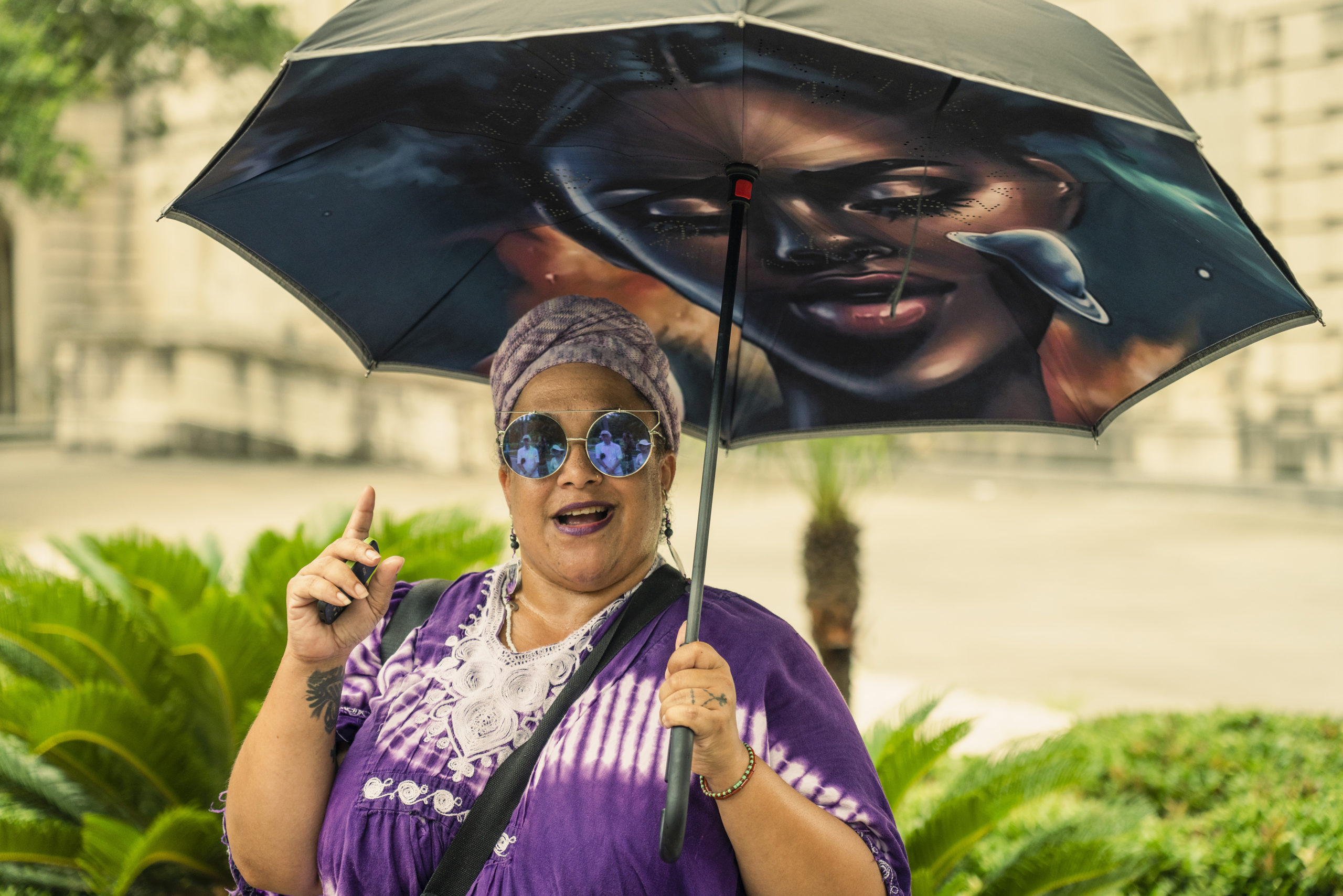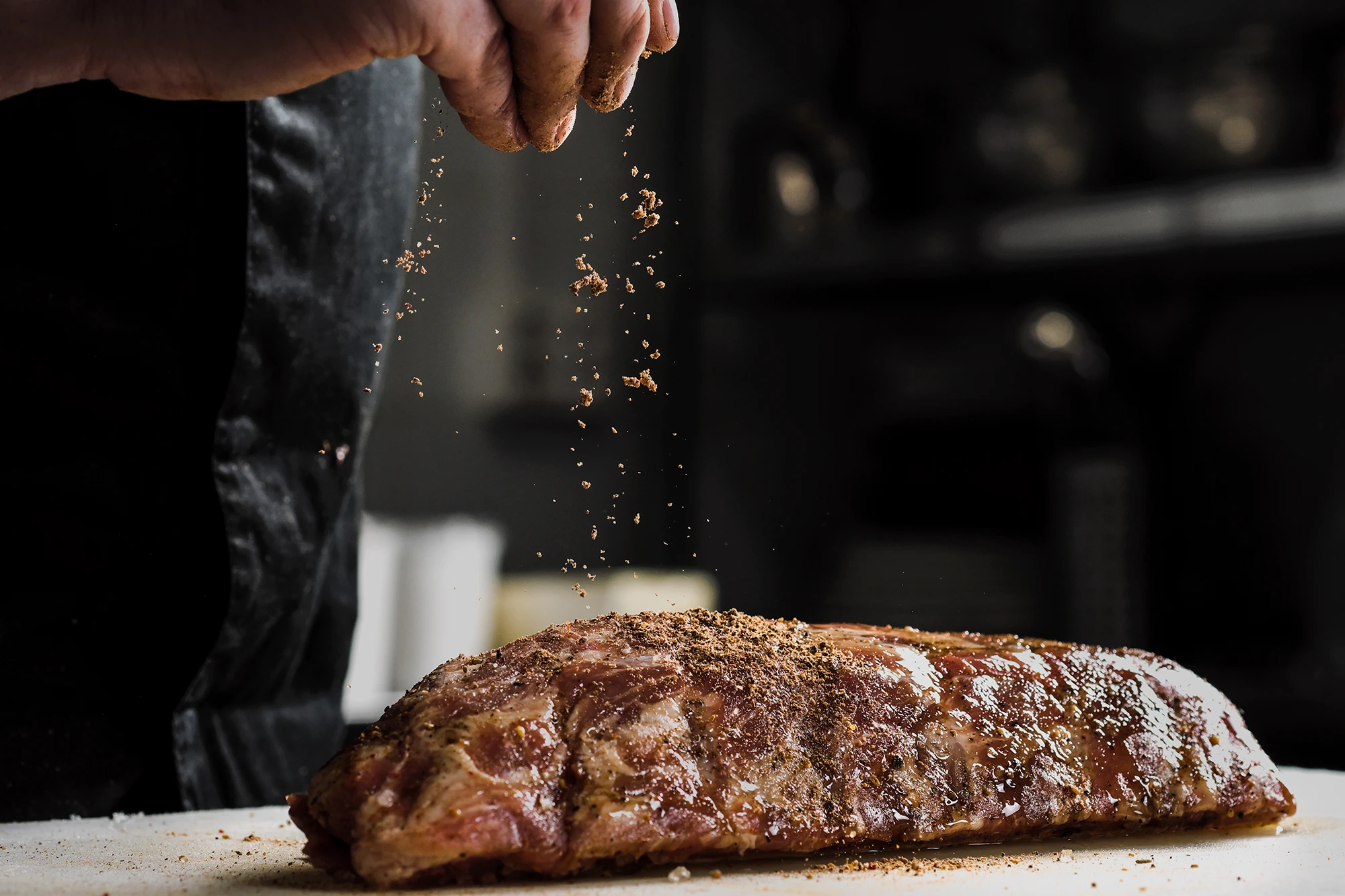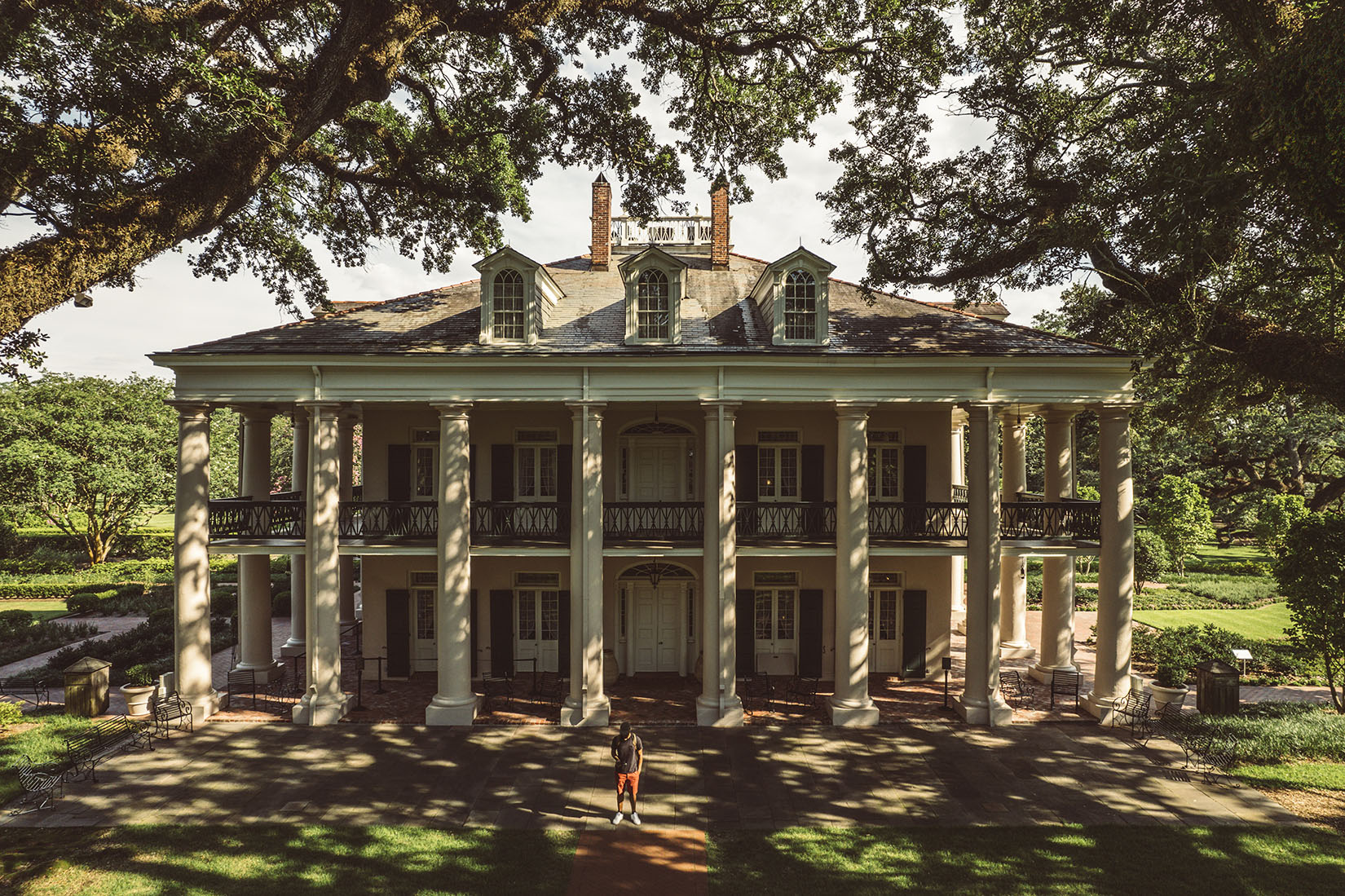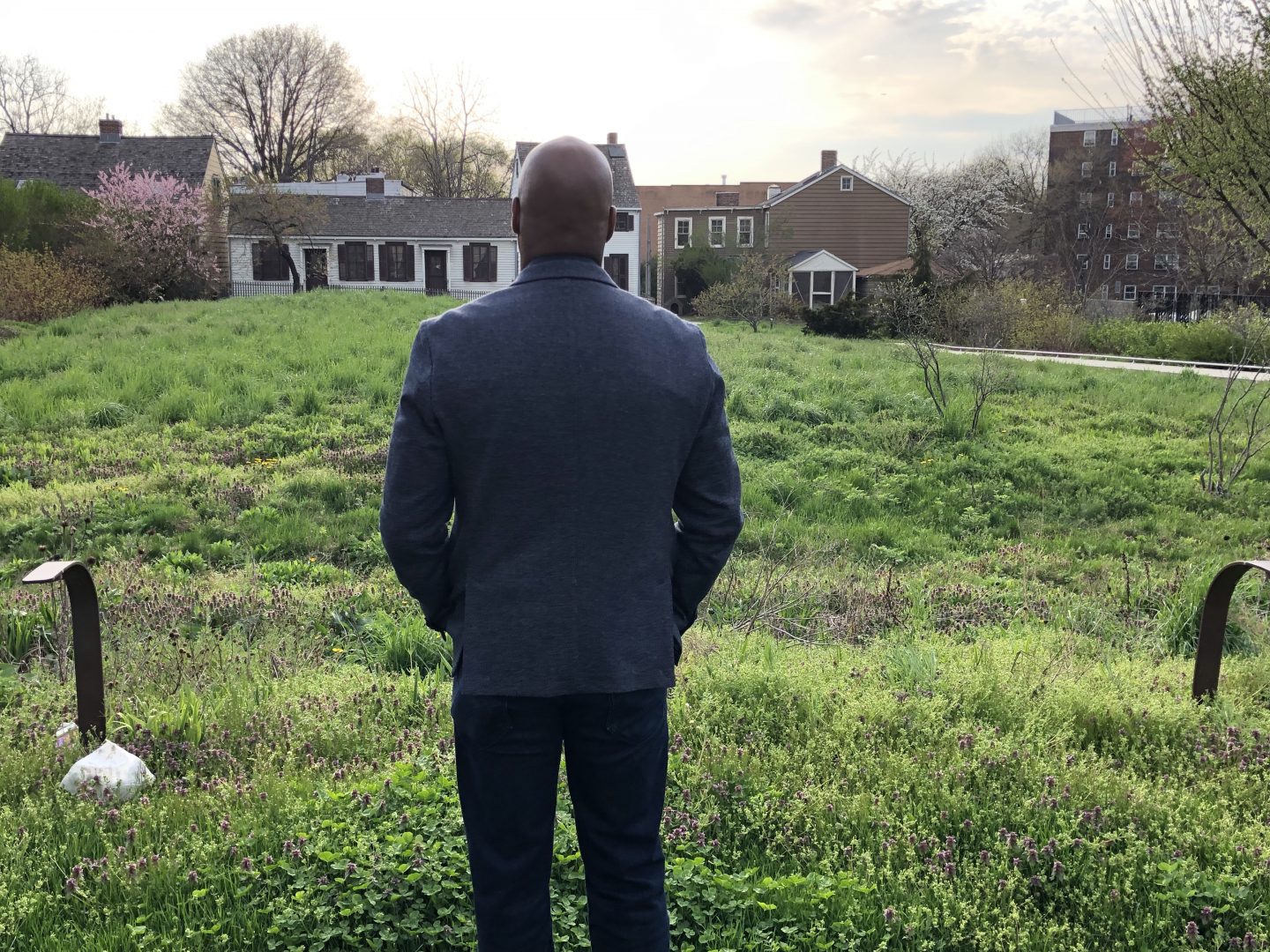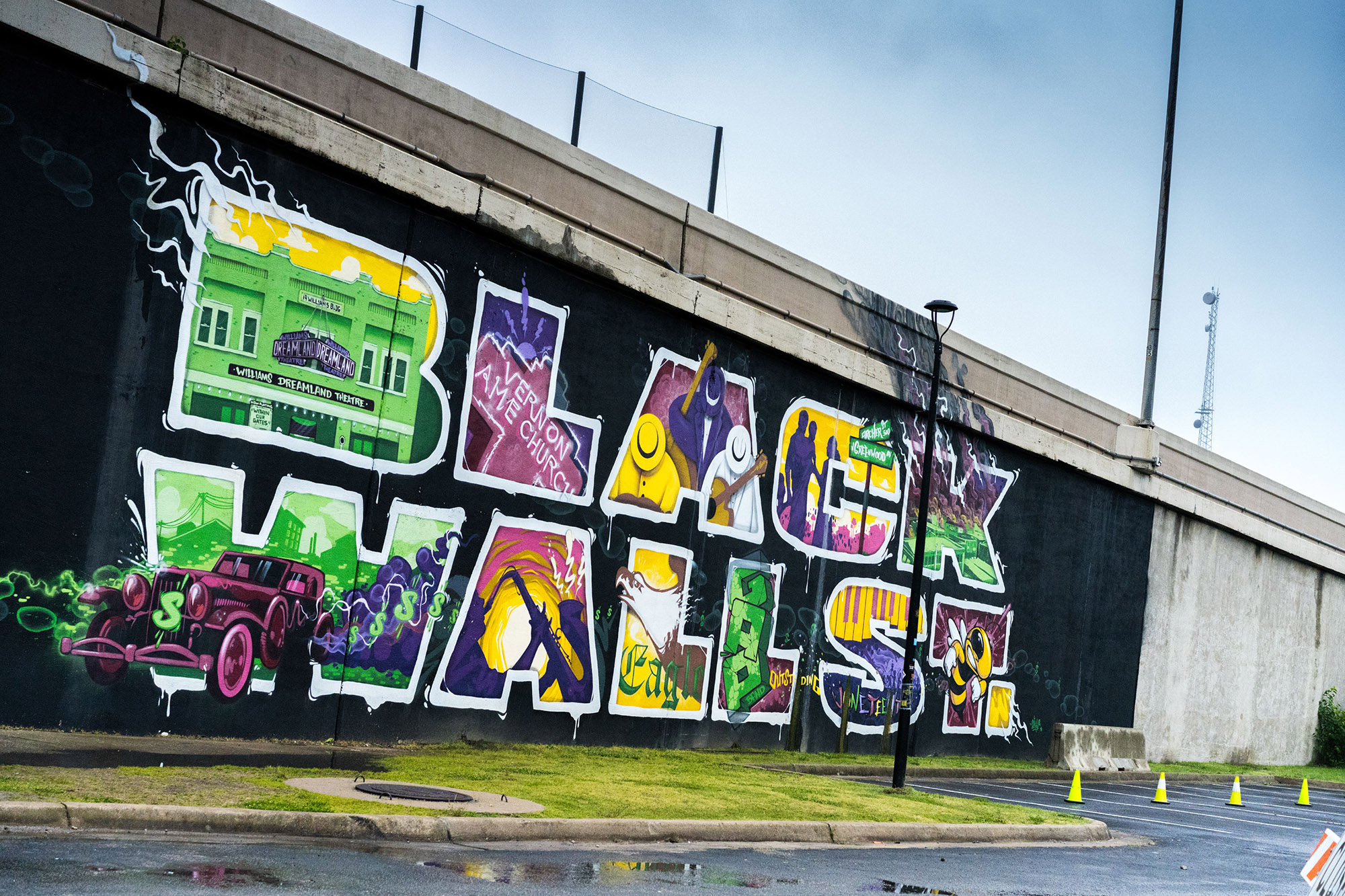
A Guide To Black-Owned Tulsa
Black history in Tulsa is deeply intertwined with the story of its Black Wall Street. Situated in the Greenwood area of central Tulsa was a famously prosperous neighborhood, at its peak in the early 1900s, where African Americans (many of whom arrived in Oklahoma after the end of the Civil War) built thriving businesses and, excellent school systems, and enjoyed access to parks, theaters, hotels, and other amenities. The success of this affluent Black neighborhood drew the attention of W.E.B. DuBois and Booker T. Washington, the latter of whom may have dubbed the district the “Black Wall Street.” Everything changed in May 1921, when the Tulsa Race Massacre changed the area forever. In an attack carried out by white supremacists, hundreds of Greenwood’s residents were murdered, and thousands of businesses, homes, and schools were burned to the ground. What was once a beacon of Black independence and entrepreneurship was destroyed by violent mobs furious that such a place dared exist.
In the wake of the destruction, the residents of Greenwood again proved their incredible resilience and fortitude. As the result of the work done across many generations since the massacre, Black Wall Street is experiencing another revitalization. Today, there are many Black-owned businesses and organizations in the area to frequent, support, and enjoy.
Read on to learn where to start exploring Black-owned Tulsa.
Where to learn
This history center is an ideal place to start your visit to the site of Tulsa’s Black Wall Street. This combination museum, cultural center, and art space was founded to educate visitors on Greenwood’s complicated legacy, including the rise of its prolific Black business corridor, to the tragedy of the 1921 Tulsa Race Massacre, and the incredible resilience of the survivors and descendants of the period. Inside, visitors make their way through an immersive, interactive exhibit chronicling the history of Greenwood, the Black pioneers and community leaders that helped to shape the community, and the rise, fall, and rebuilding of Black Wall Street.
Greenwood native Terry Baccus is activist and expert on the history of Tulsa, with family roots stretching back for hundreds of years in Oklahoma, and encyclopedic knowledge on the people, places, and events of the city’s Black and Native American history (he even produced a documentary and accompanying docuseries about Greenwood that is being rolled out locally this year). Baccus leads guided walking tours of Greenwood, customized for each guest or group, and packed with insider information and insights that many participants insist are impossible to get from guidebooks or museums.
For over four decades, this community theater company has presented productions focusing on the Black Experience, such as August Wilson’s Seven Guitars, Dominique Morisseau’s Paradise Blue, and Katori Hall’s the Mountaintop. The organization also puts on The Darktown Strutters Ball, an annual 20s-themed gala intended to commemorate the heyday of Greenwood and Black Wall Street, before the devastation wrought by the 1921 Tulsa Race Massacre.
Where to eat
Just across the street from the Greenwood Rising Cultural Center, this coffee shop was founded in 2020 with the intention of honoring the legacy of Greenwood’s thriving Black business corridor, and providing a space for people to come together for conversation and healing. Their menu features ample coffee, espresso, and tea selections, along with health-conscious takes on cafe staples (think turmeric green tea and vegan cinnamon rolls), made to order sandwiches, and more.
This nearly 20-year-old diner is certainly off the beaten path–it’s tucked away in a refurbished hangar on the north side of the Tulsa Airport. But if you know, you know: once you find Evelyn’s, you’re in for some of the best soul food in the city. Whether you’re there for breakfast (don’t miss the grits or breakfast potatoes), lunch (meatloaf that will rival your grandma’s), dinner (take your pick from catfish, fried chicken, or mac and cheese), or dessert (save room for the peach cobbler), you’ll have your pick of highly recommended dishes lovingly prepared by chef Wanda Jeffrson, who named the restaurant after her mother (and first cooking instructor), and also heads up a popular sister restaurant, Wanda J’s Next Generation, in Greenwood.
At this laid-back neighborhood eatery in North Tulsa, owner Roy Tillis and his team whip up every delicious variety of waffle you could dream up: sweet, savory, stuffed, in the form of waffle fries (topped with chicken, ranch, and buffalo sauce), and as one half of the classic chicken and waffle combo (with a twist–Waffle That! serves chicken that’s stuffed inside waffles, so you get that sweet and salty mix in every bite). Since its debut on Yale Avenue in 2021, the eatery has made quick work of becoming a local favorite, and Tillis has opened a second location on South Tulsa’s Yale Avenue, as well as a food truck.
This family-run cafe has been serving up donuts, coffee, and small bites for 10 years.. Menu standouts are the famed apple fritters, cinnamon rolls, bear claws and twists, as well as the crowd-favorite sausage rolls.
Tulsa’s reputation for barbecue might be a bit more under-the-radar than that of, say, not nearby Kansas City or Austin—but connoisseurs of the cuisine know that the city has staked its own equally delicious claim in the carnivorous culinary tradition. Try the local flavor for yourself at this affordable BBQ joint run by Leon Thompson, who spent 40 years honing his skills behind the smoker before opening his first restaurant in 2014 (a second location in the fast-growing Pearl District opened in 2022). Sample classics like baby back ribs or hot links, less-expected options like braised oxtails, or regional specialties like smoked bologna—and don’t forget to slather on plenty of Leoonn’s homemade sauce.
Where to shop
Calling all sneakerheads: Silhouette carries a handpicked and meticulously edited selection of top-shelf sneakers, from classic Jordans to Salehe Bembery’s buzzy collab with Crocs. Venita Cooper, founded the retail concept in 2019, also maintains an onsite gallery featuring a rotating collection of artwork from local and visiting artists. There’s also apparel for sale in the shop, including a T-shirt line created in partnership with the Philbroook museum honoring the T-Town Clowns, a semi-pro baseball league that represented Tulsa in the Negro Leagues in the 1940s.
Find a keepsake to commemorate the legacy of Black Wall Street, and a souvenir to remember your visit, at this shop which carries a range of T-shirts, sweatshirts, hats, keychains, posters, and other memorabilia with themes connected to the history of Greenwood’s history of Black entrepreneurship and resilience. Owner Cleo Harris Jr., who runs the shop with his family, is also well-known locally for his deep knowledge of the district’s history and his enthusiasm for sharing his insights with his customers.
About midway between downtown Tulsa’s museums and arts venues and North Tulsa’s family-friendly attractions (the Tulsa Zoo, the Air and Space Museum, and the city’s largest park), you’ll find Habit Boutique. The shop, run by Tulsa native Shavoonnna Caldwell, features a carefully curated selection of casual yet fashion-forward women’s clothing and accessories, along with some souvenir- and gift-friendly items like mugs and candles.
One of few Black-owned gaming stores in the nation, Dragonslayer stocks tabletop games such as Magic The Gathering, Pokemon, Yu-Gi-Oh, and Dragon Ball. Shoppers at the brick-and-mortar location (about 10 minutes from downtown Tulsa on South Hudson Avenue) are able to not only buy games, but to play them as well, with tournaments hosted twice weekly on site.
Omikah Asamoa-Caesar, a former teacher and avid reader, realized a longtime dream when she opened this bookshop and cafe in Greenwood in 2020. Inside the lovely brick space, you’ll find a thoughtful selection of titles, 70 percent of which are written by or about BIPOC. Fulton Street also offers a subscription box called Little & Lit, which delivers a curated set of children’s books to customers’ homes each month.
Author
-

Malika Hadley Freydberg is a multi-medium performance and visual artist based in New Orleans, Louisiana, as well as co-owner and tour guide of walking tour company Anansi’s Daughters, LLC. She’s a four time national slam poet, and is currently working on her first novella. She’s had a fascination with magick and Conjure Women since she read “Mama Day” by Gloria Naylor at age 9, and became determined to become a woman of magick from that day forward. She works as a tour guide, sharing the history and folklore of Southern Louisiana, which has informed most of her work since 2016.
View all posts
Book An Experience
Melanin Miami
Discover Miami's African American heritage on the Melanin Miami Tour, a exploration of cultural landmarks and Black-owned businesses.
Share this article
Discover Sepi Stories

-
8553 N Beach Street Suite 138
Ft Worth, TX 76244
- Become a Vendor
- Home
- My Passport (Coming Soon)
- Book Experiences
- Edit Profile
- Login
- Logout
Support
- FAQs (Coming Soon)
- Phone: 641-754-0072
- Email: contact@sepitravel.com
- Sitemap
- Privacy Policy
- Terms & Conditions
- Non Discrimination Policy

-
8553 N Beach Street Suite 138
Ft Worth, TX 76244
- Become a Vendor
- Home
- My Passport (Coming Soon)
- Book Experiences
- Edit Profile
- Login
- Logout
Support
- FAQs (Coming Soon)
- Phone: 641-754-0072
- Email: contact@sepitravel.com
- Sitemap
- Privacy Policy
- Terms & Conditions
- Non Discrimination Policy
Sepi LLC © All rights reserved 2024.

